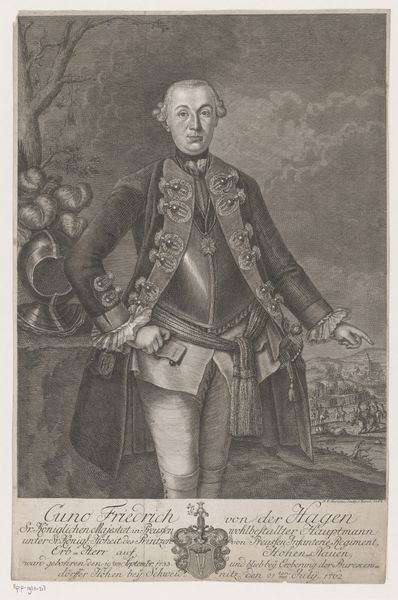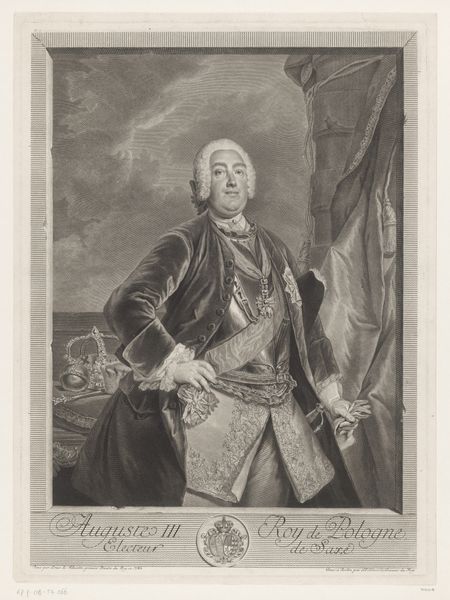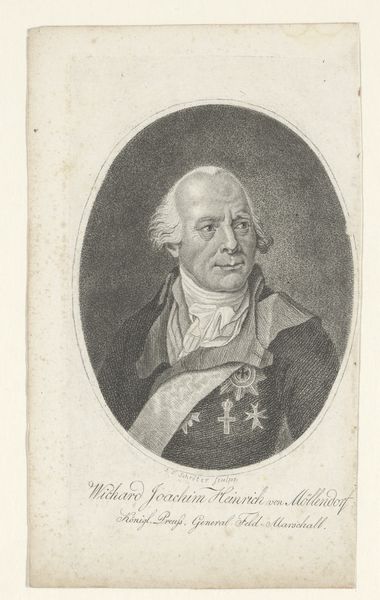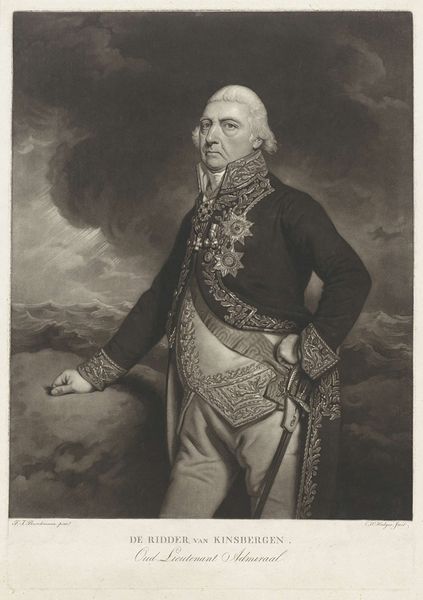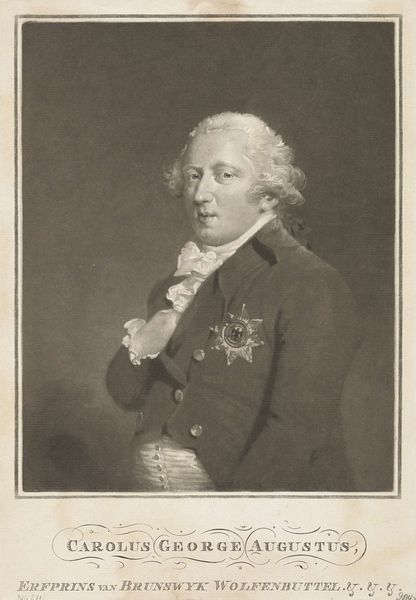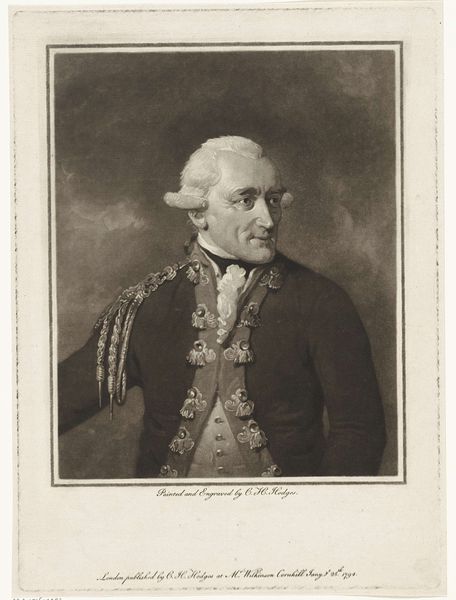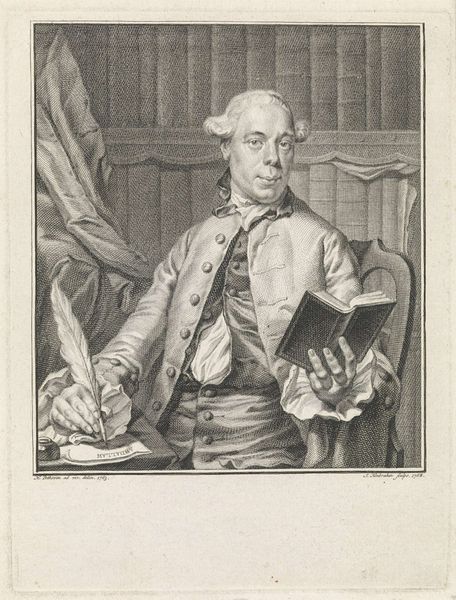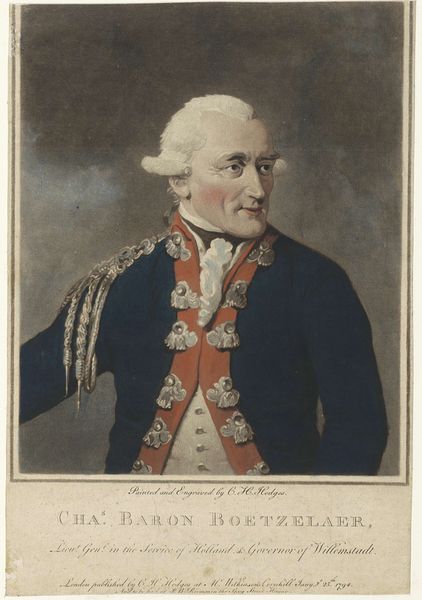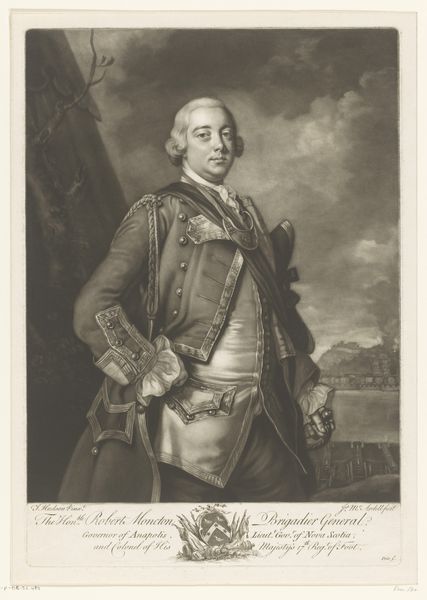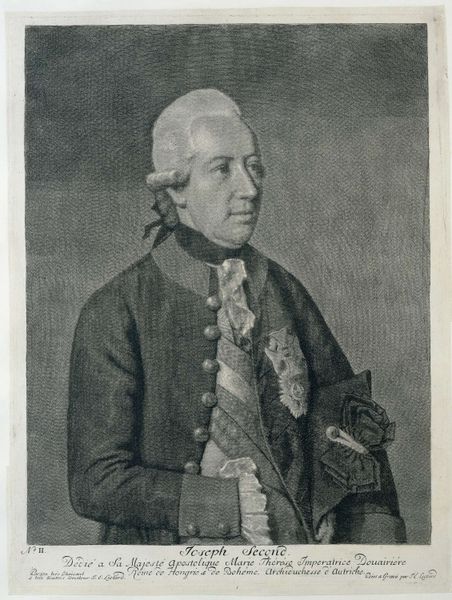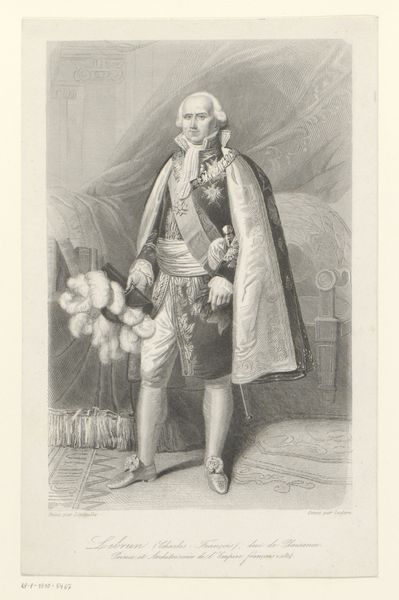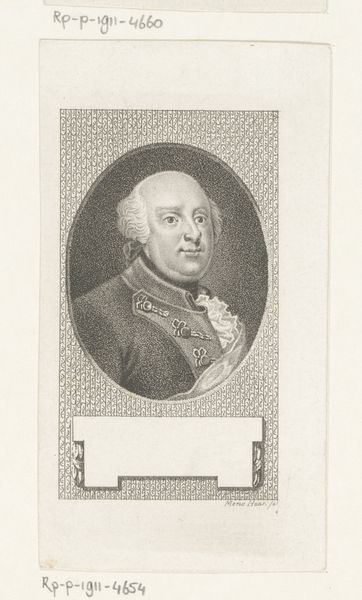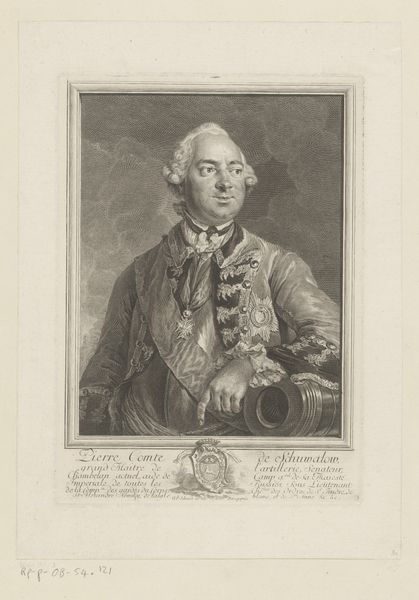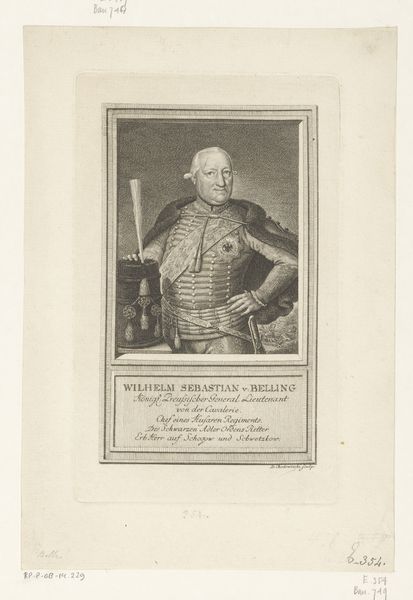
Dimensions: height 453 mm, width 315 mm
Copyright: Rijks Museum: Open Domain
Jacob Houbraken created this portrait of Ferdinand, Duke of Brunswick-Lüneburg, using engraving, a printmaking technique that demands great skill. The process begins with a metal plate, often copper. The artist uses a tool called a burin to carve lines directly into the plate’s surface. These lines, and the controlled marks, are what will hold the ink. The plate is then inked, and the surface wiped clean, leaving ink only in the engraved lines. Finally, paper is laid on the plate and run through a press, transferring the image. The precision required speaks to the values of the Enlightenment, when this was made. The clarity and detail mirror the Duke's social standing, as does the technique itself. Engraving was a laborious, specialized practice, reflecting the social hierarchy and skilled labor of the time. The final print, available in multiples, helped circulate the Duke's image, reinforcing his authority within a growing public sphere. So, next time you see an engraving, think about the hand that guided the burin, and the world that made such intricate work possible.
Comments
No comments
Be the first to comment and join the conversation on the ultimate creative platform.
